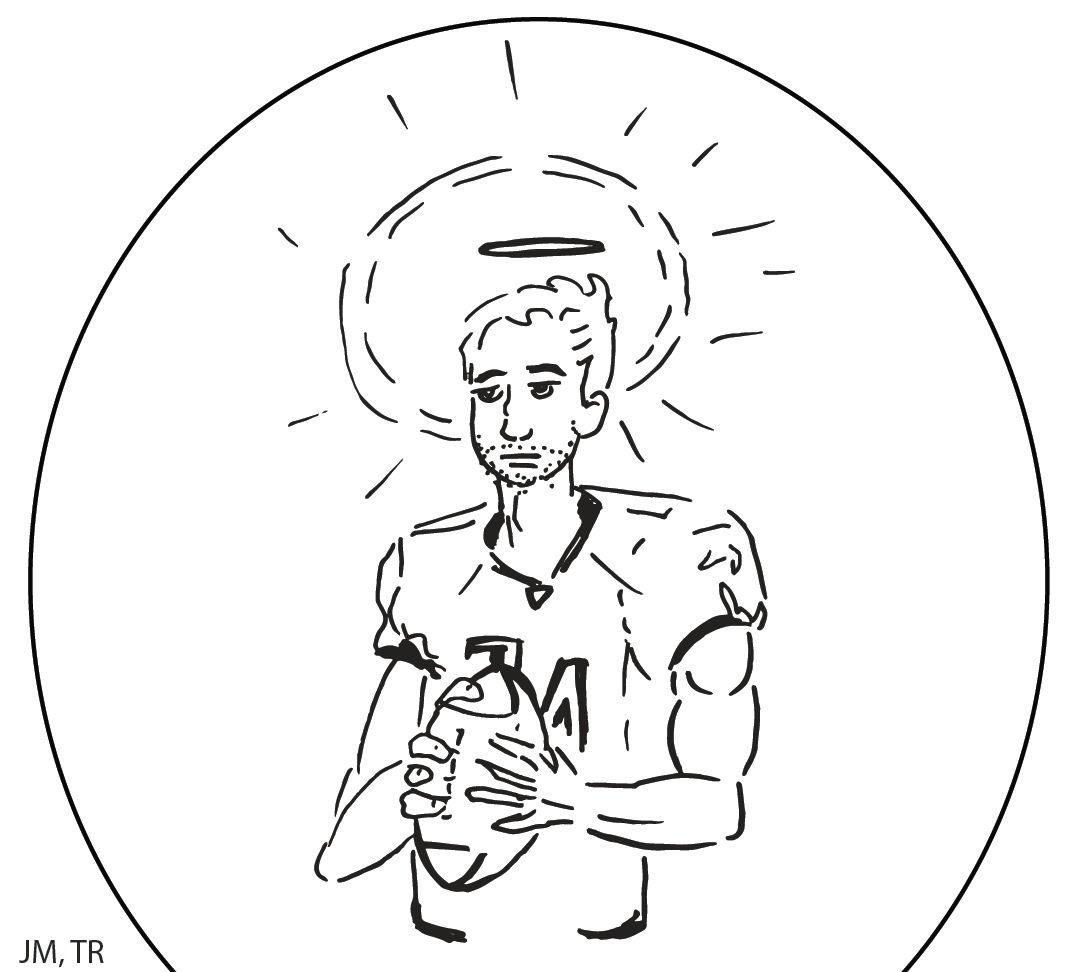Sports are an escape for most people. We have favorite teams, leagues and athletes to root-on and rely on.
If you are like me, you like when your favorite athletes do things to help the community and stick up for the oppressed. I could tell you inspiring feel-good stories about athletes, team owners and other team staff doing amazing things for other people. ESPN even has “Why We Love Sports Today” videos about sports and athletes helping and changing people.
The truth is: we all love a feel-good story.
However, there are also stories about athletes doing harmful things, like drunk driving, domestic assault, rape and even murder. When some athletes are accused of crimes, they are usually dismissed or face little repercussion.
There is no middle ground when it comes to idolizing athletes, when in reality they are people just the same as we are. Either society expects too much from them, or society lets these athletes get away with violent crimes. We see some athletes as superheroes who can do no wrong and who we expect only to do right.
Sure, there are are many instances where athletes do face consequences for their actions. Two of the more well-known cases are those of Aaron Hernandez and Michael Vick.
Hernandez, a former tight end for the New England Patriots, was convicted in 2015 of first-degree murder, and he was sentenced to life in prison without parole.
Vick, former NFL quarterback most known for his time with the Atlanta Falcons and the Philadelphia Eagles, was sentenced in 2007 to 23 months of jail time for dogfighting and was suspended from the NFL until 2009, according to USA Today.
Eric Wilbur for Boston Globe points out, “The sports we follow are filled with players, quite literally, getting away with murder as well as dozens of other criminal charges that usually disappear.”
There are many cases of athletes getting accused of crimes, but the crimes are dismissed simply because of who they are and the lawyers to which they have access.
Most famously, O. J. Simpson was charged with two counts of murder in 1994, but was acquitted in 1995 and therefore faced no jail time.
NHL golden child and USA Hockey superstar, Patrick Kane, a forward for the Chicago Blackhawks, has been accused of far too many violent acts since 2009, yet he has only had to do community service and has never faced a league suspension for anything he has been accused of, according to Mark Lazerus of Chicago Sun-Times.
These athletes get away with crimes because of who they are and what their presence means for a multi-million, sometimes billion, dollar sports franchise.
On the other hand, society expects some athletes to go above and beyond for others. Many people have this mentality of, “Well, they make enough money. They should not keep all that wealth to themselves.”
In reality, these athletes do not have to do anything with their income they do not want to do, but most do something anyway.
Most players have a specific charity to which they give money; leagues have charity months and games set aside for raising money. It is inspiring to see these millionaires giving back to communities which helped raise them, giving to children’s hospitals and paying attention to wounded veterans. It shows these athletes do, in fact, have a sense of humanity and humility.
However, if an athlete chooses not to participate in these charity games, or invest in or start a charity, they would be condemned quickly and without question. They would have to explain why, and then would be made a pariah in their sport, costing them endorsements and fans.
It also extends to when athletes protest or speak out against something when some people do not agree with them. The respective leagues then blackball the athletes, much like Colin Kaepernick, former quarterback for the San Francisco 49ers, who has been for protesting against police brutality.
I am not saying people who have the ability to help others should not, but we should not expect these people to be superheroes of society. Athletes can only do so much.
We should also not let athletes get away with crimes. Be critical of the things and people you like, but do not expect them to be a god.
Categories:
Athletes are not superheroes
0
Donate to The Reflector
Your donation will support the student journalists of Mississippi State University. Your contribution will allow us to purchase equipment and cover our annual website hosting costs.
More to Discover






